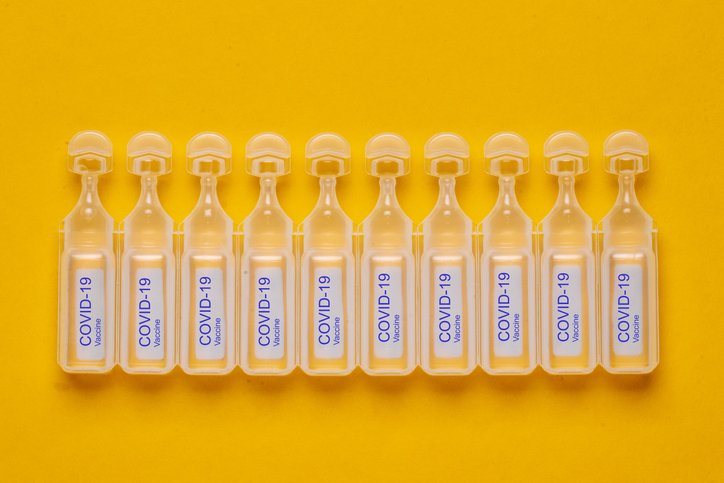‘Things will never go back to how they were’
Marc Bonten about long-term effects of COVID-19
Since mid-March, not an hour goes by without you reading, hearing or seeing something about corona. Many will have had more than enough of this by now. But COVID-19 is among us and we have no choice but to deal with it. Now the number of infections is going down and the government measures are eased, the question arises: what does this pandemic mean for our future? Will the world change drastically? In this series, scientists of Utrecht University outline their expectations.
To what extent will corona have consequences for how we arrange our work in the upcoming years? Is this crisis good or bad news for the climate, the economy and our interaction with animals in the long run? Will the virus result in permanent changes to our social interactions and will it possibly lead to sustainable reforms in education, healthcare and urban and regional planning?

In the fourth and last part of this series we meet Marc Bonten and talk to him about testing capacity, cooperation and the probability of future pandemics. Bonten is Professor of Molecular Epidemiology of Infectious Diseases and medical microbiologist at UMC Utrecht. In his role as expert, Bonten is a member of the national Outbreak Management Team.
What’s the likelihood that on 4 January we’ll be able to wish our work colleagues a Happy New Year with a kiss and hug?
‘I’d say for 2021 that’s out of the question. The virus will still be there and we won’t have a vaccine yet. Really, the most optimistic scenario to be found in the models is that by late 2021 a large part of the Dutch population will have been vaccinated with a functioning vaccine.’
Once we have a vaccine, will the world go back to how it was before corona?
‘No, things will never exactly go back to how they were before. I think this pandemic will leave a huge imprint on our DNA. My field – microbiology – will change a lot, for instance. Small-scale operations used to be the guiding principle. We had fifty small laboratories which all had a lack of resources. Our ‘enemies’ were the large foreign labs, such as those in Germany, which were able to test on a very large scale, and also cheaply. In the Netherlands we’ll have to cooperate much more and organise ourselves in large laboratories, otherwise commercial suppliers will fill that gap.
Besides this, I expect that working from home will be assigned a permanent role. To begin with, we were all hesitant about this development but now we realise that you can actually work very efficiently from home. I also think that people will, for instance, visit congresses less often.’
Is the commercialisation of labs a good or bad trend?
‘Well, in the light of recent events, it’s very good. Because it turned out we really didn’t have enough testing capacity. On the other hand, we couldn’t have significantly changed the situation even with more capacity. The wave that hit us came so fast and so strongly – testing alone wouldn’t have been an effective counter-measure. But in the phase where we are now, and even more so later in the year, I expect we really will need a great amount of testing capacity.’
So what do you expect will happen later in the year?
‘Viruses transmitted through the respiratory tract do much better when there’s an ‘r’ in the month. The question is whether the measures we’ve taken will be good enough. If we now keep a careful finger on the pulse, following the relaxation of measures, then one conceivable scenario is that we could get through the autumn and winter with little trouble.Another scenario is that things don’t stay trouble-free at all. That we’re once again confronted with a huge increase in infections and experience a really tough time. I regard this probability as a little lower.’

If we do manage to get through the season without too many problems, are you then optimistic about the time after this?
‘Well, we’ll need to keep the measures in place. So for a while, life will still be a bit more boring than before corona. And that’s also hoping we don’t immediately get a new virus on our doorstep. Because, of course, it’s more than likely that this won’t be the last virus to hit us this way.
Due to global problems, the probability of pandemics like these is growing. There are more and more of us, we’re coming into contact with animals and their micro-organisms and, due to our travel habits, we’re moving very rapidly round the world. In recent years many megacities have arisen. People are moving from rural areas into the big cities and living close to each other under bad conditions. These are problem hotbeds. I don’t think there are any quick fixes for this situation.’
Not a reassuring thought... In five years from now, will we still be keeping our distance from each other and will we still be unable to hug our (grand)parents?
‘No, on this scale I’m more optimistic, I think that in five years we’ll be done with this. In the end we’ll get over it, and we’ll also learn lessons from it. But as I said: it’ll never be just like it was before.’
What lessons have already been learned?
‘Unfortunately we haven’t learned much so far. Maybe a little about how we as a country need to organise ourselves. That will lead to changes in my specialist field: bigger laboratories with more supplies, which can upscale faster.
And we’ve seen that a lockdown is really possible, and that it works. To begin with I thought: what the Chinese are now doing won’t be possible in any other country than China. It’s surprising that it worked so well here, too. The downside is the economic malaise. There had always been voices in the wilderness warning of a pandemic, but I don’t think anyone ever realised what economic damage it would cause as well. Some are saying that a whole generation will be burdened by this.
In Europe, to be frank, I still don’t see any lessons being learned. What I mostly see is inadequate cooperation. We went through a difficult story with the distribution of personal protection equipment, and the same thing threatens to happen again with the purchase of vaccines. It’s no different when we look at collaboration in scientific research. The European Commission is really eager to promote cooperation, but each country is just looking out for itself and that’s really painful to see. So one of the major challenges for the near future is to improve the European culture of cooperation.’


